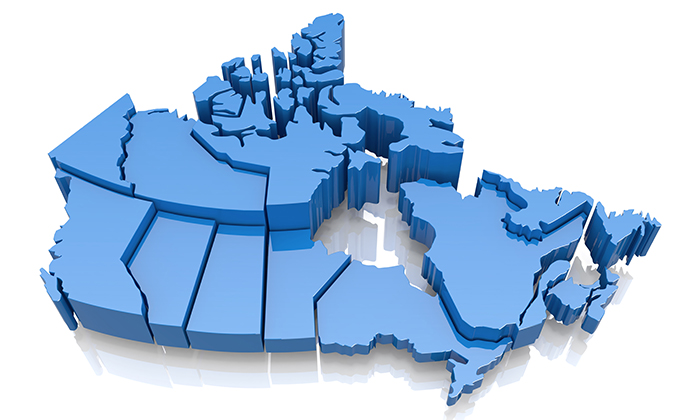Population Data BC (PopData) facilitates access to data from PopData partners, including both federal and provincial sources, and through partnerships with the Government of British Columbia to support the delivery of the Data Innovation Program (DI Program) and Health Data Platform BC (HDPBC). A wide range of data, from both federal and provincial sources is available across these access streams.
It is important to note that data is shared differently by data providers and, as a result, there may be variations in eligibility criteria, data access request processes, requirements in the project lifecycle and whether linkage of data sets across programs/providers is permitted. PopData, the BC Government and other data providers, have worked hard to harmonise processes for Researchers as much as is possible.
For more detailed information on the PopData/HDPBC data access process, go to: Data access process. For more information on data access for the DI Program, go to: the DI Program website.
Core vs. Non-Core Data
- Core Data: Some BC Ministry of Health data sets available through PopData and HDPBC are called ‘Core Data’. A Core Data set is a standardized ‘bundle’ of commonly requested variables. A Core Data set may not include ALL the variables available in the data set. For example, some Core Data variables, such as geography or organisational codes, are suppressed to meet privacy legislation requirements.
- Non-Core Data: Non-Core Data are variables that are NOT included in the standardized Core Data set. Non-Core Data is available for request as an addition to the Core Data set.
For the majority of DARs, requesting access to Core Data ONLY may make the data access approval process quicker and may expedite data provision. Data requests that include Non-Core Data will be subject to regular rather than expedited processes, both for application review and data provisioning.
Please note that the overall data access request is subject to meeting ALL of the Five SAFEs requirements. For more details, go to: Eligibility and the Five SAFEs model.
The tables below show the data sets available by category.
Please note: Variables available for a particular data set may differ across the DI Program, PopData and HDPBC streams, so always check to make sure that what you need is available.
 Demographic
Demographic
| Data set | Availability | ||
| DI Program | PopData | HDPBC | |
| BC Vital Events and Statistics Births | ✓ view | No longer available | ✓ view |
| BC Vital Events and Statistics Deaths | ✓ view | No longer available | ✓ view |
| BC Vital Events and Statistics Marriages | ✓ view | No longer available | |
| BC Vital Events and Statistics Stillbirths | ✓ view | No longer available | ✓ view |
| Central Demographics File (MSP Registration and Premium Billings, Client Roster and Census Geodata)/Consolidation File | ✓ view | No longer available | |
| Client Roster (CR) Snapshot | ✓ view | ✓ view | |
| Contiguous Client Roster | ✓ view | ||
| Population and Environmental Risk Characteristics (PERC) | ✓ view | ||
| Population Extrapolation for Organizational Planning with Less Error (PEOPLE) | ✓ view | ||
| Registration and Premium Billings (RBP Lite) | ✓ view | No longer available | |
 Education
Education
| Data set | Availability | ||
| DI Program | PopData | HDPBC | |
| K to 12 Socio Economic Index (SES) | ✓ view | ||
| K to 12 Student Assessments | ✓ view | ✓ view* | |
| K to 12 Student Demographics and Achievements | ✓ view | ✓ view* | |
| K to 12 Student Learning Surveys | ✓ view | ✓ view* | |
 Environment and Resources
Environment and Resources
| Data set | Availability | ||
| DI Program | PopData | HDPBC | |
| The Canadian Urban Environmental Health Research Consortium (CANUE) | ✓ view* | ||
 Justice
Justice
| Data set | Availability | ||
| DI Program | PopData | HDPBC | |
| Corrections - Adult Community and Custody | ✓ view | ||
 Health
Health
| Data set | Availability | ||
| DI Program | PopData | HDPBC | |
| BC Cancer Registry | ✓ view | ✓ view* | ✓ view |
| BC Perinatal Data Registry | ✓ view | ✓ view* | ✓ view |
| BC Renal | ✓ view | ||
| BC Stroke Registry | ✓ view | ||
| Canadian Longitudinal Study on Aging | ✓ view* | ||
| Chronic Disease Registry | ✓ view | No longer available | ✓ view |
| CIHI Population Grouping Methodology (CPOP) | ✓ view | ||
| COVID-19 Census Hospitalizations and Critical Care Reports | ✓ view | ||
| COVID-19 Immunization Data | ✓ view* | ||
| COVID-19 Test Lab Data | ✓ view | No longer available | ✓ view |
| Discharge Abstract Database | ✓ view | No longer available | ✓ view |
| HealthIdeas Common and Reference Dimensions | ✓ view | ||
| HealthLink 811-COVID | ✓ view | ||
| Health System Matrix | ✓ view | ||
| Home and Community Care | ✓ view | No longer available | |
| Home and Community Care Minimum Reporting Requirements | ✓ view | ||
| Medical Imaging Wait Times | ✓ view | ||
| Medical Services Plan (MSP) | ✓ view | No longer available | ✓ view |
| Medical Services Plan (MSP) Practitioner File | ✓ view | ||
| Mental Health & Addictions Minimum Reporting Requirements | ✓ view | ||
| Mental Health Services | ✓ view | No longer available | ✓ view |
| National Ambulatory Care Reporting System (NACRS) | ✓ view | No longer available | ✓ view |
| Patient-Centered Measurement (PCM) | ✓ view | ||
| Patient-Centered Measurement (PCM) - Acute Inpatient 2016-17 Survey | No longer available | ||
| Patient-Centered Measurement (PCM) - Emergency Department Survey 2018 | No longer available | ||
| Patient-Centered Measurement (PCM) - Long Term Care Survey | No longer available | ||
| PharmaCare | ✓ view | No longer available | |
| PharmaNet | ✓ view | No longer available | ✓ view |
| Post-Covid Recovery Clinic | ✓ view | ||
| Provincial Immunization Registry | ✓ view | ||
| Provincial Overdose Cohort | No longer available | ||
| Residential Assessment Instrument | ✓ view | No longer available | ✓ view |
| Surgical Wait Times (SWT) | ✓ view | ||
| VPP Clinical OMOP Data | ✓ view | ||
 Social
Social
| Data set | Availability | ||
| DI Program | PopData | HDPBC | |
| Affordable Child Care Benefit | ✓ view | ||
| BC Employment and Assistance | ✓ view | ✓ view | |
| BC Family Maintenance | ✓ view | ||
| BC Property Assessment | ✓ view | ||
| Canadian Index of Multiple Deprivation (CIMD) | ✓ view | ||
| Child and Youth Mental Health (CYMH | ✓ view | ||
| Child Care Subsidy | ✓ view | ||
| Child Welfare Program | ✓ view | ||
| Community Living Programs | ✓ view | ||
| Early Development Instrument | ✓ view | ✓ view* | |
| Middle Years Development Instrument | ✓ view* | ||
| Permanent Residents | ✓ view* | ||
| Private Market Rent Supplements for Eligible Seniors and Working Families | ✓ view | ||
| Shelter and Homeless Outreach Private Market Rent Supplements | ✓ view | ||
| Sports Participation | ✓ view | ||
| Supportive Housing | ✓ view | ||
 Transportation
Transportation
| Data set | Availability | ||
| DI Program | PopData | HDPBC | |
| ICBC – Contraventions | ✓ view | ||
| ICBC – Crashes | ✓ view | ||
| ICBC - Driver Licensing | ✓ view | ||
| ICBC - Traffic Accident System (TAS) | ✓ view | ||
| ICBC - Vehicle Population | ✓ view | ||
 Work and Income
Work and Income
| Data set | Availability | ||
| DI Program | PopData | HDPBC | |
| Income Band | ✓ view* | ||
| Income Bands - Custom | ✓ view | ||
| Income Bands by Postal Code | ✓ view | ||
| Labour Market Programs | ✓ view | ||
| WorkSafe Claims, Injury and Firm Level files | ✓ view* | ||
| Career Paths for Skilled Immigrants | ✓ view | ||
| Provincial Nominee Program | ✓ view | ||
* If you are planning to link this data set from PopData to data sets available through HDPBC, your project will go through the HDPBC or the DI Program stream, and the above data may be able to be brought in via ‘bring your own data’ (BYOD).


